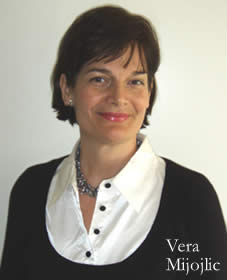 South East European Film Festival in Los Angeles showcases the work of filmmakers from Southern and Eastern Europe, and films made by expatriates who live in California and who trace their origins to the Balkans, the countries of the Danube, and the Black Sea.
South East European Film Festival in Los Angeles showcases the work of filmmakers from Southern and Eastern Europe, and films made by expatriates who live in California and who trace their origins to the Balkans, the countries of the Danube, and the Black Sea. The only one of its kind in the United States, its message is not only to show films but to educate about South East Europe, its troubled history, and cultural diversity.
In Los Angeles since 1992, Vera Mijojlic founded the first-ever festival of films from Southeast Europe,  www.seefilmla.org, and launched promotional campaigns for Balkan films, as well as movies from other European countries. Prior to 1992 Vera worked with major international motion picture companies filming in ex-Yugoslavia, including location filming for the historic ’84 Winter Olympic Games in Sarajevo. She also ran marketing and PR department for Avala Film Studios in Belgrade, and wrote extensively about films and cultural events for numerous daily papers, magazines, and cultural reviews.
www.seefilmla.org, and launched promotional campaigns for Balkan films, as well as movies from other European countries. Prior to 1992 Vera worked with major international motion picture companies filming in ex-Yugoslavia, including location filming for the historic ’84 Winter Olympic Games in Sarajevo. She also ran marketing and PR department for Avala Film Studios in Belgrade, and wrote extensively about films and cultural events for numerous daily papers, magazines, and cultural reviews.
Bijan Tehrani: Please tell us about your background and how you started “South East European Film Festival”?
Vera Mijojlic: My roots go back to Bosnia, Sarajevo, and the Yugoslav Cinematheque. The auditorium was small, cold in winter and very hot in summer. When my family moved to Belgrade my love affair with the Yugoslav Cinematheque continued in an equally shabby and creaky basement theatre.
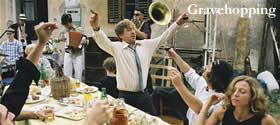 I saw everything. American musicals from the 30’s with now forgotten Janet McDonald and Nelson Eddy. Elvis Presley films. All movies with Garbo, silent and talkies. “The Battleship Potemkin”, and scores of Russian silent films about endless fields of wheat conquered by a solitary tractor. Obscure Hungarian or Czech melodramas that linger in my memory too fragmented to piece back together and track down as identifiable films. “Dr. Jekyll and Mr. Hyde” with Fredric March. James Cagney movies. I progressed to other run down theatres which played B-movies and developed a taste for martial arts and Bruce Lee. I saw Sam Peckinpah and Pasolini’s films. And I became a film critic.
I saw everything. American musicals from the 30’s with now forgotten Janet McDonald and Nelson Eddy. Elvis Presley films. All movies with Garbo, silent and talkies. “The Battleship Potemkin”, and scores of Russian silent films about endless fields of wheat conquered by a solitary tractor. Obscure Hungarian or Czech melodramas that linger in my memory too fragmented to piece back together and track down as identifiable films. “Dr. Jekyll and Mr. Hyde” with Fredric March. James Cagney movies. I progressed to other run down theatres which played B-movies and developed a taste for martial arts and Bruce Lee. I saw Sam Peckinpah and Pasolini’s films. And I became a film critic.
The festival began with a manifesto I wrote in October 2002 when a group of filmmakers and artists got together with me to launch the “Sarajevo project”. It 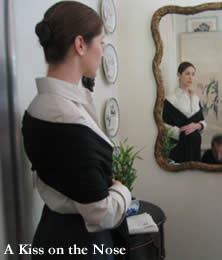 paved the way to the current South East European Film Festival which takes place every May in Los Angeles. To quote from that charter document, we “seek to unite people across borders and divides through the cinematic experience … (and) to create a caravan of the arts moving freely between cultures, beyond all geographical coordinates.”
paved the way to the current South East European Film Festival which takes place every May in Los Angeles. To quote from that charter document, we “seek to unite people across borders and divides through the cinematic experience … (and) to create a caravan of the arts moving freely between cultures, beyond all geographical coordinates.”
Bijan: What countries participate in the South East European Film Festival”?
Vera: I try not to speak in terms of countries, borders, divides. Let me describe South East Europe as the home of, among others, Bulgarians, Albanians, Romanians, Macedonians, Serbs, Montenegrins, Bosnians, Croats, Slovenes, Greeks, Turks, Roma people, as well as ethnic enclaves of Slovaks, Hungarians, Rusyns, Sephardic Jews, Italians, Czechs, Germans, Austrians, Armenians, Kurds, and recent arrivals such as the Chinese. In the age of the disclaimer, let me add that the national and ethnic groups, minorities, and combinations thereof are mentioned here as an illustration of ethnic richness only. For readers interested in demographic maps please consult Wikipedia pages on the Balkans, Black Sea, and Eastern Europe.
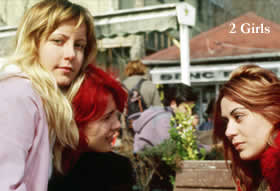 Bijan: How many movies are sent each year for the festival and how do you select the movies for the festival screening?
Bijan: How many movies are sent each year for the festival and how do you select the movies for the festival screening?
Vera: We screen 15 to 20 films every year. These include features, shorts, experimental and documentaries, with animated films soon to follow.
The selection process starts with submissions of films by their authors and recommendations by film critics. Research plays a big part in finding the hidden gems, films that have never been shown but have captured the unique passions and “Balkan spirit”. One such signature film was “Whose is this Song?”, which opened the festival last year.
The festival also presents films made by expatriates who live in California and who trace their origins to the Balkans, the countries of the Danube, and the Black Sea.
Bijan: Please tell us about your experience with “South East European Film Festival” in 2006, movies screened and guests that attended the festival.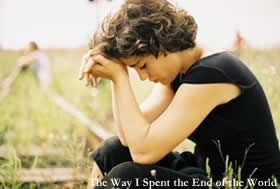
Vera: In 2006 SEE Film LA had introduced, among others, such films as the already mentioned, WHOSE IS THIS SONG? by the Bulgarian director, Adela Peeva, a documentary exploration of the origins of a song that people in Turkey, Greece, Macedonia, Albania, Bosnia, Serbia and Bulgaria all claim as their own; BORDERLINE LOVERS by the Bosnian director, Miroslav Mandic about mixed ethnicity couples making a living across ethnic divides; TIRANA YEAR ZERO by the Albanian director, Fatmir Koci, a gently humorous portrait of the young people torn between the lives of their parents and their own need to make a better living; 100% SLOVENIAN by the Slovenian director, Hanna A.W. Slak, an in-depth portrait of little known Slovenian émigrés in the United States; PRETTY DYANA by the Serbian director, Boris Mitic, a loving tribute to the entrepreneurial spirit of Roma refugees from Kosovo living in shanty towns around Belgrade; and BUZZ by the Greek director Spiro N. Taraviras, a memorable, absorbing and illuminating profile of the legendary Hollywood scriptwriter of film noir whose parents were Greek-Armenians from Turkey. American actress Gaby Rodgers, the star of the Bezzerides-scripted noir masterpiece, “Kiss Me Deadly” attended the closing night premiere of “Buzz”.
We also gave our modest contribution to the celebration of the 150th Anniversary of the birth of Serbian-American scientist and inventor, Nikola Tesla, who invented, developed or imagined the technology that brought us electricity, remote control, neon and fluorescent lighting, radio transmission and much more…all the basic inventions that now connect the world with power and information. We presented an excellent PBS documentary about Tesla, directed by Robert Uth.
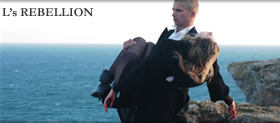 Bijan: What are the plans for “South East European Film Festival” 2007?
Bijan: What are the plans for “South East European Film Festival” 2007?
Vera: This year South East European Film Festival will open with the screening of the Bulgarian film “L’s Rebellion”, written and directed by Kiran Kolarov, followed by the Romanian Oscar entry, “The Way I Spent the End of the World”, directed by Catalin Mitulescu.
Box office blockbuster in Bulgaria, “L’s Rebellion”, featuring the young Deyan Slavchev in a career-making role of Loris will have its North American debut at the SEE Film LA opening night on May 3. The film tells a heart-breaking story about a young rebel at heart, Loris, who tries to escape to the West in 1986, only to be released after the fall of the Berlin Wall into a society ripped apart by organized crime.
Winner of Best Actress award for Dorotheea Petre at Cannes Film Festival’s “Un Certain Regard” in 2006, “The Way I Spent the End of the World” is a warm-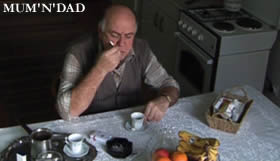 hearted coming-of-age story of two siblings making the most of it in the last months of Ceausescu’s regime in Romania. Brilliantly acted by the pitch-perfect Dorotheea Petre (“Ryna”), and young boy Timotei Duma, the film follows them through the pains of first love and challenged loyalties.
hearted coming-of-age story of two siblings making the most of it in the last months of Ceausescu’s regime in Romania. Brilliantly acted by the pitch-perfect Dorotheea Petre (“Ryna”), and young boy Timotei Duma, the film follows them through the pains of first love and challenged loyalties.
Both films are timely reminders of the difficulties countries of South East Europe face regardless of their EU status. While they try to come to terms with their recent past, they also struggle with the corruption and organized crime, as well as the need to make the societies in transition work. Memorable characters like Loris and Eva embody the new “lost generation”, and their plight stays with the viewer long after the last, haunting frame.
Bijan: Does “South East European Film Festival” have any sponsors and supporters?
Vera: We are proud of our on-going collaboration with the Goethe Institute of Los Angeles, our main venue, and the Studio Screenings Group which operates the Fine Arts Theatre, our closing night venue. Our patron sponsor is American Cinema Foundation, which helped us get started and since 2001 had supported our efforts to establish South East European film showcase in Los Angeles. Festival’s general wine sponsor is “Sebeka” wine from South Africa.
We are especially proud of our association with the UCLA’s Center for European and Eurasian Studies, which co-sponsors the festival, and our newly developed collaboration with UCLA’s Department of World Arts and Cultures. Other sponsors and supporters include Est Net TV – Bulgarian Television in the U.S, Rebel Wine & Spirits, Lavazza coffee, La Espanola Meats, Bosnian “Aroma” café, Le Pain Quotidien, consulates of Bulgaria and Romania, Social Uplift Foundation, California Advertising, Borders Bookstores, Virgin Megastore, Skirball Cultural Center, Los Angeles County Museum of Arts, and a great cadre of volunteers.
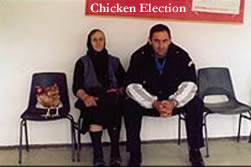 Bijan: What movies we should look for in “South East European Film Festival” 2007?
Bijan: What movies we should look for in “South East European Film Festival” 2007?
Vera: One should see at least three films, for example: first, Turkish “Two Girls” about two firebrand rebel-teenagers roaming the city of Istanbul unlike you’ve ever seen it; second, Albanian “Snowdrops”, a beautiful etude on lonely parents whose children have gone to the West in pursuit of a better life and, perhaps, happiness; third, Serbian “7 1/2 “, a riotous and funny tour-de-force take on seven deadly sins which combines drama and comedy in a superb summation of society in modern Serbia. No story is purely comic, and yet even the darkest situations have a flare of humor.
Together, as different as these films are in style, story telling, tempo, ,or music score, they form a triptych of South EastEuropean landscape of solitude, feeling that its people are continually late for the global party and lag behind, sustained only by their graveyard humor, and luckily for the rest of us by the wonderful, spirited, irreverent artists who tell their stories in these movies. 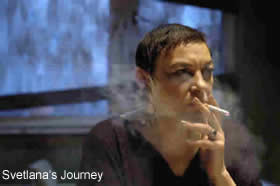
Bijan: What are your future plans for “South East European Film Festival”?
Vera: We want to develop sidebar specialty programs and offer a selection of films that explore a specific issue. We also want to further develop and expand our educational component and develop collaborative programs with other organizations, and engage research groups, institutions and students.
Our initial goal to create a cross-border meeting place where films, creative people and the public get together 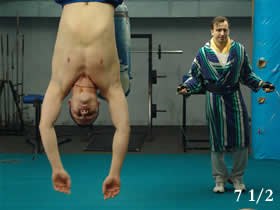 remains the same. We simply offer this meeting place to those who want to stop by, and have a sense (perhaps a fleeting one, but that’s ok) of a community free from any restrictions imposed by borders, politics, the past – or hostilities stemming from so many sectarian agendas. Last year the Bulgarian director Peeva summed it all up in her film’s title: ”Whose is this song”? She almost got beaten for asking the question.
remains the same. We simply offer this meeting place to those who want to stop by, and have a sense (perhaps a fleeting one, but that’s ok) of a community free from any restrictions imposed by borders, politics, the past – or hostilities stemming from so many sectarian agendas. Last year the Bulgarian director Peeva summed it all up in her film’s title: ”Whose is this song”? She almost got beaten for asking the question.
I would like to remind the “Cinema Without Borders” readers that asking questions about the same thing from different nations can be a dangerous pursuit in more places than just South East Europe. But I for one will keep asking such risky questions. That’s the one thing I can promise you I will keep doing.

